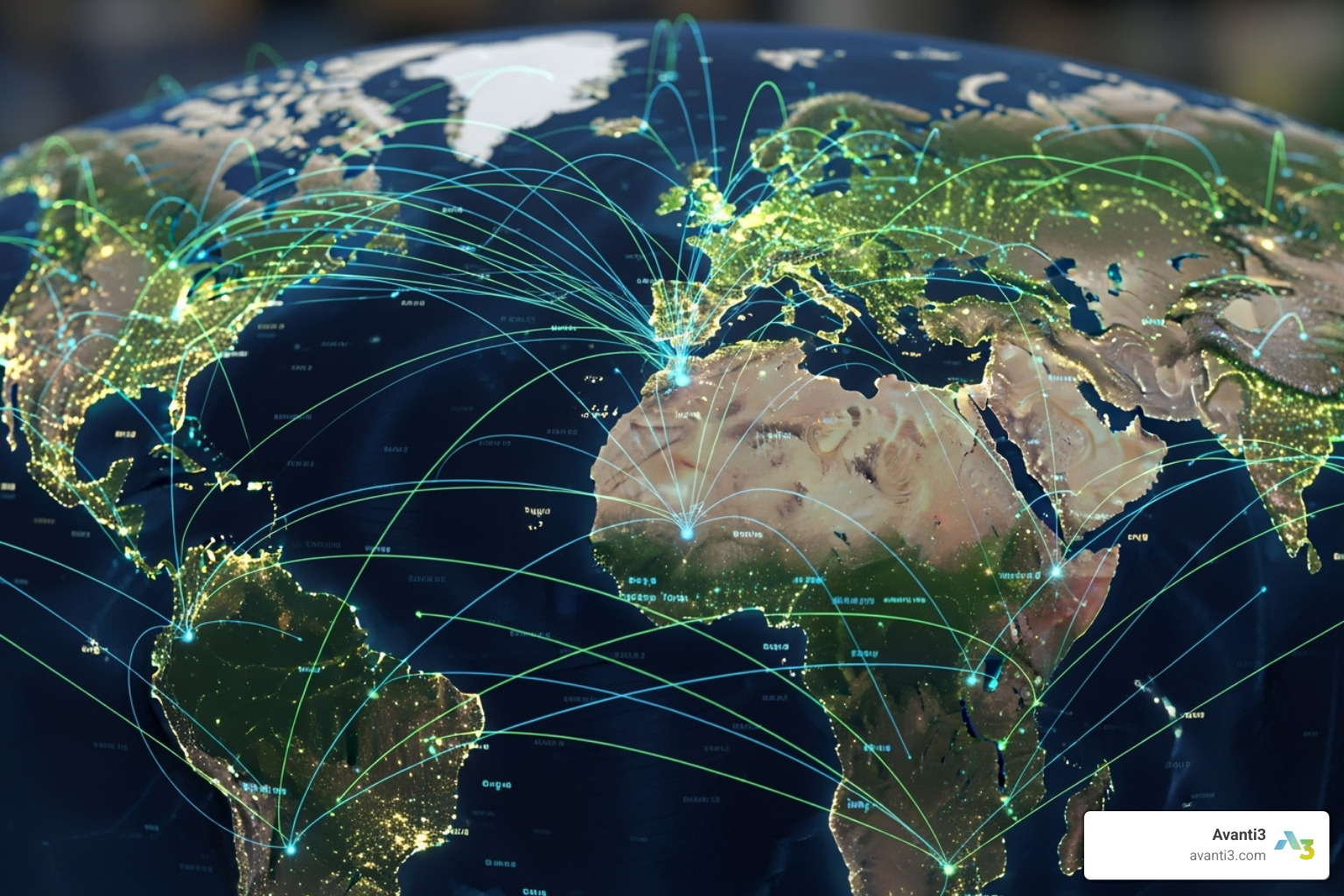Role of fintech in financial inclusion and financial integration: Key Impact 2025
Understanding Fintech’s Revolutionary Impact on Global Finance
The role of fintech in financial inclusion and financial integration is one of the most transformative forces in modern finance, reshaping how billions access and use financial services.
Key roles of fintech in financial inclusion and integration:
- Expanding Access: Helped 1.2 billion previously unbanked adults gain financial access in the last decade.
- Reducing Costs: Digital accounts cost 90% less than traditional ones, making services affordable for low-income populations.
- Enabling Integration: Lowered cross-border payment fees from 6.8% to as low as 3.3%.
- Driving Growth: Could add $3.7 trillion to emerging economies’ GDP by 2025.
- Bridging Divides: Reaches underserved populations in remote areas where traditional banks don’t operate.
Despite progress—global account ownership rose from 51% in 2011 to 76% in 2021—1.7 billion adults worldwide still lack basic financial services. This gap disproportionately affects women, youth, and rural populations.
The fintech revolution addresses this with solutions like mobile money, digital lending, and blockchain services. These technologies create new pathways for financial integration, connecting isolated communities to the global economy.
I’m Samir ElKamouny AV. My work helping businesses scale has shown me how fintech can transform lives and economies by combining cutting-edge technology with genuine social impact.
Simple role of fintech in financial inclusion and financial integration glossary:
- fintech definition
- how do fintech companies integrate with banks
- banking compliance for fintech integrations
Analyzing the Role of Fintech in Financial Inclusion and Financial Integration

The global financial landscape shows dramatic progress, with account ownership jumping from 51% to 76% in a decade. However, significant gaps remain, highlighting the crucial role of fintech in financial inclusion and financial integration. While some advanced economies have 100% account ownership, some developing nations lag at just 2.5%.
Fintech matters because it overcomes the economic barriers that prevented traditional banks from serving remote or low-income populations. Digital accounts cost 90% less than traditional ones, a game-changing reduction that makes serving excluded populations profitable. Fintech’s impact is most profound in developing countries, where it fills the gaps left by scarce traditional banking infrastructure.
Mobile money in Africa and South Asia is a prime example. It allows urban workers to send money home instantly and safely. A Gates Foundation study found mobile money reduced extreme poverty by 42% in Bangladesh and boosted self-employment in Uganda, leading to better family welfare and business growth.
Key innovations include mobile money, digital lending using alternative data, mobile payments, digital capital raising (P2P platforms), insurtech for affordable protection, and robo-advisors for democratized wealth management. These technologies slash the costs and barriers of traditional banking.
How Fintech Expands Access for Underserved Populations
Fintech has helped 1.2 billion previously unbanked adults gain financial access in the last decade. The economic ripple effects are staggering: this access could add $3.7 trillion to emerging economies’ GDP by 2025 and create 95 million new jobs, fostering stable incomes and thriving communities.
The key is mobile account accessibility. With digital accounts costing just $10 annually per customer, serving everyone becomes smart, tech-enabled economics. Fintech also boosts micro-entrepreneurship with credit and payment solutions. Alternative credit scoring, using data like utility bills, provides affordable credit that is crucial for growth. The UN highlights that fintech can provide up to $2.1 trillion in capital for individuals and SMEs, creating economic opportunities for the previously excluded.
Enablers and the Role of Fintech in Financial Inclusion and Financial Integration

For fintech to maximize its impact on financial inclusion, several key enablers must be in place.
- Trust and Security: Trust is fundamental. Users, especially first-timers, must believe their money and data are safe. Services must not only be secure but feel secure, with transparent data protection and robust cybersecurity to address user fears of theft and privacy loss.
- Service Quality: A smooth, reliable, and intuitive user experience is essential for adoption.
- Digital Infrastructure: Reliable internet and widespread smartphone adoption are the essential backbone. While mobile subscriptions have grown, gaps remain in remote areas.
- Cybersecurity and Data Privacy: Strong security measures are vital for protection and building user confidence. Regulations and ethical data practices are needed to protect user information and prevent algorithmic biases that could exclude vulnerable groups.
These enablers are interconnected; success requires addressing them all simultaneously to build the trust needed for widespread adoption.
The Impact of Specific Fintech Instruments
The impact of fintech varies by instrument, each with unique strengths and weaknesses.
- Digital Lending: Can expand credit access for small businesses. However, it requires responsible practices and strong consumer protection to avoid predatory lending and unsustainable debt.
- Mobile Payments: A major success, slashing remittance fees from 6.8% to as low as 3.3%. Transformative platforms like M-Pesa in Kenya have enabled widespread economic activity, contributing significantly to national GDP.
- Digital Capital Raising: Via crowdfunding and P2P platforms, this offers alternative finance for SMEs. Prosocial crowdfunding, in particular, supports microfinance initiatives.
- Insurtech: Uses technology to offer affordable micro-insurance products, providing a crucial safety net against risks like crop failure or health emergencies for vulnerable populations.
- Algorithmic Bias: This is a significant challenge. AI systems can perpetuate historical biases, potentially worsening exclusion. Careful auditing and fair design are essential to ensure equity.
Literacy, Regulation, and the Role of Fintech in Financial Inclusion and Financial Integration

Access to fintech is only the first step. True inclusion requires digital financial literacy and smart regulation that balances consumer protection with innovation.
The digital financial literacy gap is a major barrier. In India, for example, high account ownership contrasts with low digital transaction usage, showing that access alone is insufficient. Literacy bridges the gap between fintech availability and its effective use, empowering users to make smart financial decisions.
Consumer protection is crucial against risks like fraud and predatory lending. Clear terms, fair dispute resolution, and safeguards against over-indebtedness build the trust needed for adoption. When users perceive strong regulatory support, they are more likely to adopt fintech services.
Many countries use regulatory sandboxes to test innovations in a controlled environment. This collaborative approach allows regulators to develop appropriate frameworks without stifling new technologies. Policy frameworks must balance innovation with consumer protection. As fintech grows, thoughtful regulatory responses are essential, as highlighted by calls from bodies like the U.S. Department of the Treasury for improved oversight. Effective policy must promote financial education, improve regulatory capabilities, and encourage cross-border coordination.
The Future of Finance: Policy, Collaboration, and Innovation

The future of finance is being shaped by smart collaboration, thoughtful regulation, and breakthrough innovation. The role of fintech in financial inclusion and financial integration is central to creating a world where everyone can thrive, which is both an exciting opportunity and a great responsibility.
Policy Recommendations
Effective policy requires balancing innovation with consumer safety and financial stability. Key priorities include:
- Balancing innovation with regulation to create guardrails that protect consumers without stifling creativity.
- Improving digital financial literacy, which is essential for safe adoption, especially for vulnerable groups.
- Strengthening regulatory institutions with the technical skills to oversee complex innovations like AI and blockchain.
- Enhancing cross-border coordination as fintech operates globally, requiring seamless regulatory cooperation.
- Addressing algorithmic bias to ensure AI-powered services are fair and don’t perpetuate exclusion.
Public-Private Partnerships and Traditional Bank Collaboration
The future of finance lies not in replacing traditional banks, but in collaboration between banks and fintechs. This approach combines the experience and trust of traditional banks with the speed and innovation of fintechs.
Open banking is a prime example, where banks securely share data via APIs, allowing fintechs to build innovative services on existing infrastructure. Strategic partnerships are also accelerating product development and expanding market reach for underserved segments, creating better services and stronger businesses.
Web3 Technology and AI in Finance
The next wave of innovation is powered by Web3 technology and AI.
Web3 technology, including blockchain and decentralized finance (DeFi), promises more transparent and accessible financial systems. It can enable new credit mechanisms, lower transaction fees, and reduce fraud, building greater trust.
AI in finance continues to revolutionize the industry, offering everything from personalized 24/7 financial advice to advanced fraud detection.
At Avanti3, we integrate cutting-edge Web3 technologies like NFTs, blockchain, and AI to empower creators and brands. While we focus on digital engagement and monetization, our commitment to secure digital transactions fosters broader financial integration and new economic opportunities. We build innovative, accessible solutions for a more inclusive digital future. Find more info about our Web3 fintech solutions on our website.
Sustainable Development Goals (SDGs)
The impact of fintech on financial inclusion directly supports global development goals. Financial inclusion is key to several UN Sustainable Development Goals (SDGs), including poverty eradication, gender equality, and economic growth. Access to financial services empowers people to save, invest, start businesses, and manage risk.
The potential impact is immense: improved financial access could add $3.7 trillion to emerging economies’ GDP and create 95 million new jobs by 2025, changing lives and communities.
The journey to universal financial inclusion continues. Through smart policy, collaboration, and innovation, fintech can create a world where financial tools are accessible to all, regardless of location, gender, or income.







